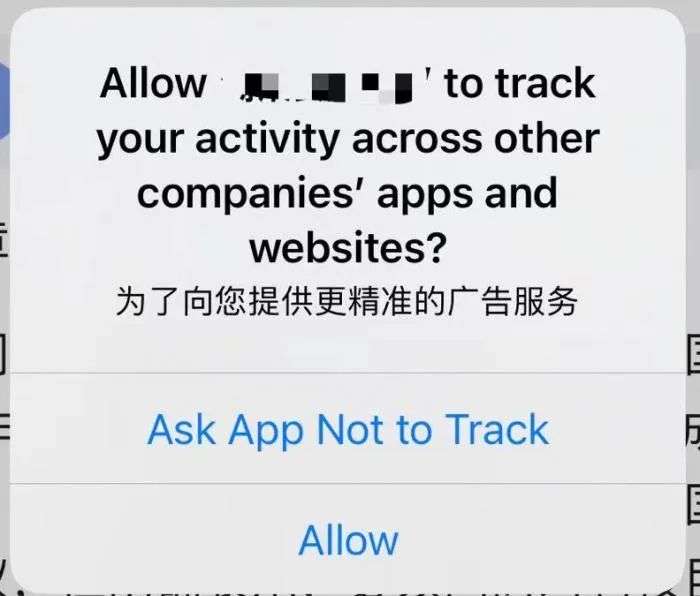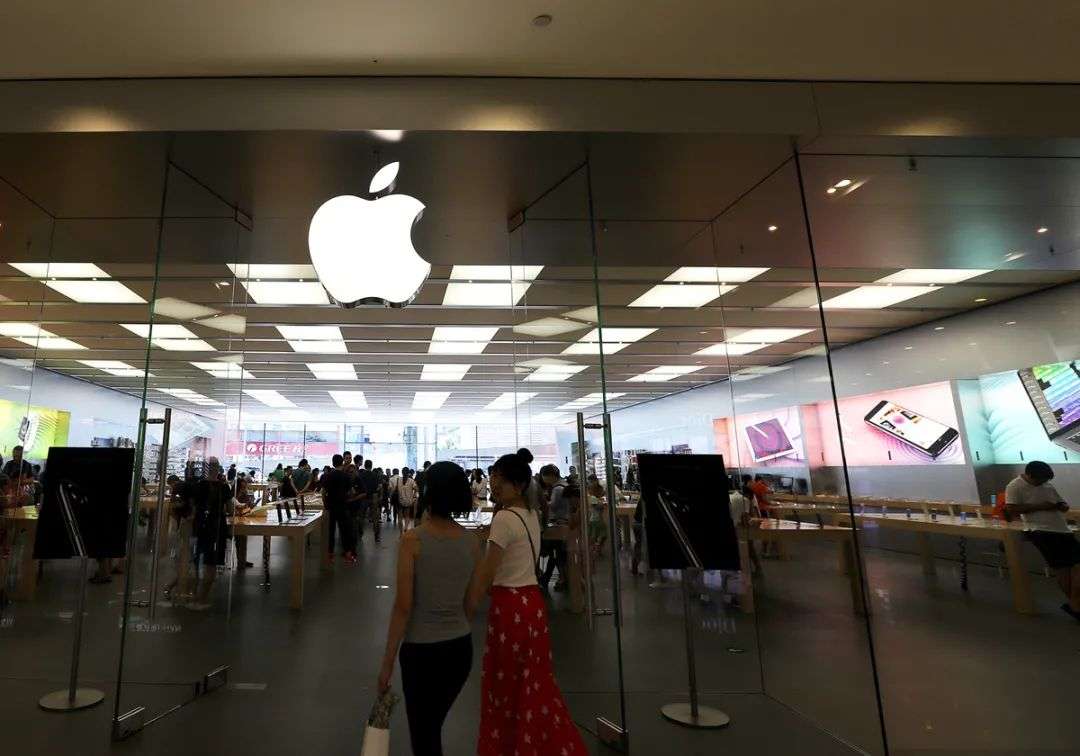After waiting for nearly a year, the boots finally landed.
Editor’s note: This article is from the WeChat public account “Daily Economic News” (ID: nbdnews), Editor: He Xiaotao, Du Hengfeng Xiao Yong, Proofreader: Cheng Peng, Daily Economic News Comprehensive Sina Digital, 21st Century Business Herald, Tencent Digital etc.
On April 7, Apple updated the “A Day in Personal Data” page, adding an explanation of the “App Tracking Transparency” (App Tracking Transparency, referred to as ATT) function, including the new feature of App Tracking License.
This feature allows users to choose when or whether to allow applications to track or share personal data across platforms. When a user opens an app for the first time, the device will pop up a window to remind you: In order to provide you with more accurate advertising services, are apps allowed to track user activities across platforms?
This feature will come along with the iOS 14.5 system update, which means that Apple is one step closer to protecting user privacy.
The launch time of iOS 14.5 has not yet been determined. However, Apple CEO Tim Cook revealed in an interview on April 5: “It will be launched in the next few weeks.”
After the news was released, it appeared in the hot search on Weibo, and many netizens applauded this new feature of Apple:
Apple will launch new features soon:If you want to track data, you need user consent
In fact, this is not a brand-new feature. As early as the WWDC 2020 Global Developers Conference, Apple proposed the concept of “App tracking transparency”. One of the policies is to require developers to provide a summary of privacy practices and explain to users that they are Where will the collected data go. This feature was officially launched in December last year.
And another feature under this policy-App must first obtain the user’s permission before tracking user data-until now it is officially seen with everyone.
According to the 21st Century Business Herald, the reporter measured the beta version of iOS 14.5. App tracking transparency is reflected in the user opening an app for the first time, and the device will pop up a reminder: In order to provide you with more accurate advertising services, whether to allow the app Track user activity across platforms?
For users, Apple puts the security protection of user privacy at the forefront. The implementation of ATT gives users the right to know whether the App calls personal privacy data and where the data is used. This ensures that the user’s personal privacy data protection is more transparent, and the user will be more proactive in mastering the privacy switch.
Apple has also added a “tracking” option in the system “Settings-Privacy”. In this setting, the user can see which apps have been allowed to track, so as to adjust according to their own situation. In addition, Apple has added a master switch to this setting. If this switch is turned off, the user will no longer receive the “whether to allow tracking” prompt and will refuse App tracking by default.
Currently, the iOS 14.5 beta system has tracking settings, but it has not been enabled. Picture source: Sina Technology
It is worth mentioning that Apple specifically mentioned in its official statement issued on April 5: “Collecting equipment and usage data with the intention of obtaining a user’s unique identification or fingerprint is still in violation of the Apple Developer Program License Agreement. “This means that alternative functions designed by developers to circumvent anti-tracking effects do not comply with Apple Store privacy rules.
Accurate advertising will be affected
So for users and developers, what impact will Apple’s new privacy policy have?
First we need to understand the concept of IDFA. Its full name is Identifier for Advertising, Translated as “advertising identifier”. It is a number bound to the device. Although the user itself cannot be identified through IDFA, the device can be identified. Advertisers use it to accurately place advertisements.
According to Sina Digital’s analysis, IDFA is the focus of preventing tracking. If the user does not allow App tracking, the system will hold IDFA. App can’t obtain IDFA and naturally can’t provide accurate advertisements for users.
Specifically, the situation that “users have just searched for shoes on an e-commerce website and saw the same advertisements online on other apps” will not happen again.
As an important part of the “App Tracking Transparency” rule, the advertising identifier IDFA on Apple devices will be changed from the existing default on state to the default off state.
Image source: Photo by reporter Zhang Jian (data map)
In addition, for developers, not only is the loss of accurate advertising delivery, but also the analysis of advertising attribution.
What is ad attribution? When an advertiser puts an advertisement and wants to know whether the advertisement has an effect and what impact it has on users, this evaluation process is called ad attribution. In order to get the answer, advertisers will try to track the behavior on the user’s device, such as whether the user has visited the advertising link, and whether the product has been purchased as a result.
Apple also knows that the inability to conduct advertising attribution will cause developers “a headache”, so it provides a tool-SKAdNetwork that can measure the effectiveness of advertising without tracking users.
This set of tools allows advertisers or developers to obtain data such as installs and clicks after the App displays ads, so as to evaluate the effectiveness of advertising campaigns. At the same time, it will not share any data related to users or devices.
Equivalent to Apple’s own development of a set of tools, without collecting user data, for advertising attribution. Obviously, this approach is not as accurate as the IDFA method. After all, the more data obtained, the deeper the understanding of users.
Advertisers panic,Facebook vs. Apple
Mobile based on user information tracking analysisInternet customized advertising has become a huge market. According to statistics from the mobile Internet market research agency App Annie, the mobile sector has promoted the development of the advertising industry in 2020-mobile advertising spending has increased to 240 billion U.S. dollars and is expected to grow by 2021 To 290 billion US dollars. And Apple’s new privacy policy may hit the digital advertising industry.
App developers represented by Facebook (Facebook) obtain traffic through free services and realize monetization through advertising business, that is, advertising + free service model. For Facebook, this policy change of Apple may mean that its advertising revenue will be substantially reduced.
In this regard, Facebook has expressed its critical views widely and outspokenly.
In December last year, Facebook continuously published full-page advertisements in multiple media, claiming that Apple’s privacy measures would not only harm small businesses, but also the entire Internet. Facebook said that because of Apple’s new policy, many apps and websites will have to start charging subscription fees, or add more in-app purchases to make ends meet, making the Internet “more expensive.”
Recently, Cook said in an interview that he was shocked by the criticisms of iOS privacy protection features in recent months, and said that these comments are difficult to refute directly.
When the host asked about the impact of the new features on Facebook, Cook said that he does not pay attention to Facebook’s business, so it is difficult to evaluate the impact of the New Privacy Policy on Facebook. As for Facebook’s view of Apple as a “competitor”, Cook also said he did not fully agree with it. “Although we have competition in some aspects, but if you ask who is Apple’s biggest competitor, Facebook will not be in our list, because we are not doing social network business.” Cook said.




